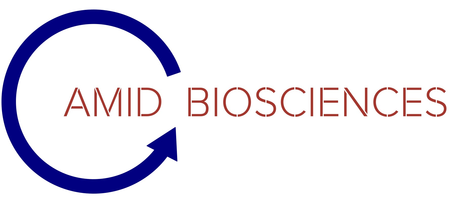
Amid Biosciences | Protein Engineering Company
VAV1 Protein, Human, Recombinant, Biotinylated
The guanine nucleotide exchange factor (GEF) VAV1 plays an important role in T-cell activation and tumorigenesis. In the GEF superfamily, VAV1 has the ability to interact with multiple families of Rho GTPases. VAV1 regulates T/B cell receptor signaling, T cell activation, T helper cell differentiation, cytokine production, actin polymerization, and cytoskeleton reorganization via GEF-dependent and -independent pathways. Recent studies suggest that targeting VAV1 has therapeutic potential in T and T/B cell-mediated autoimmune and chronic inflammatory diseases (1, 2).
Recombinant human VAV1 protein with the N-terminal AviTag™ peptide and His-tag is produced in E. coli cells and site-specifically biotinylated at AviTag with BirA enzyme.
Tag(s): The N-terminal 6XHis and AviTag
Amino Acids: 178-574 of VAV1 (UniProt # P15498-1).
Expression system: E.coli
Catalog # VAV1-B-301
Storage buffer: 20 mM Tris-HCl, pH 7.5, 100 mM NaCl, 5 mM 2-mercaptoethanol, 0.04 % Tween 20, 20% Glycerol.
Concentration: 1.0 mg/mL by A280 (please see specific lot number).
Molecular weight: ~49.7 kDa
Purity: >85% by Coomassie staining
Storage is recommended at -80°C.
International Shipping: Product requires shipping on dry ice. Please contact info@amidbiosciences.com for shipment estimates.
For Bulk Orders or Custom Packaging: please contact info@amidbiosciences.com
This product is for laboratory research use only.
References
1. Neurath, Markus F. et al. VAV1 as a putative therapeutic target in autoimmune and chronic inflammatory diseases. Trends in Immunology 2024, 45 (8), 580 – 596.
2. Guerreiro-Cacais, A.O. et al. VAV1 regulates experimental autoimmune arthritis and is associated with anti-CCP negative rheumatoid arthritis. Genes Immun. 2017; 18:109.



